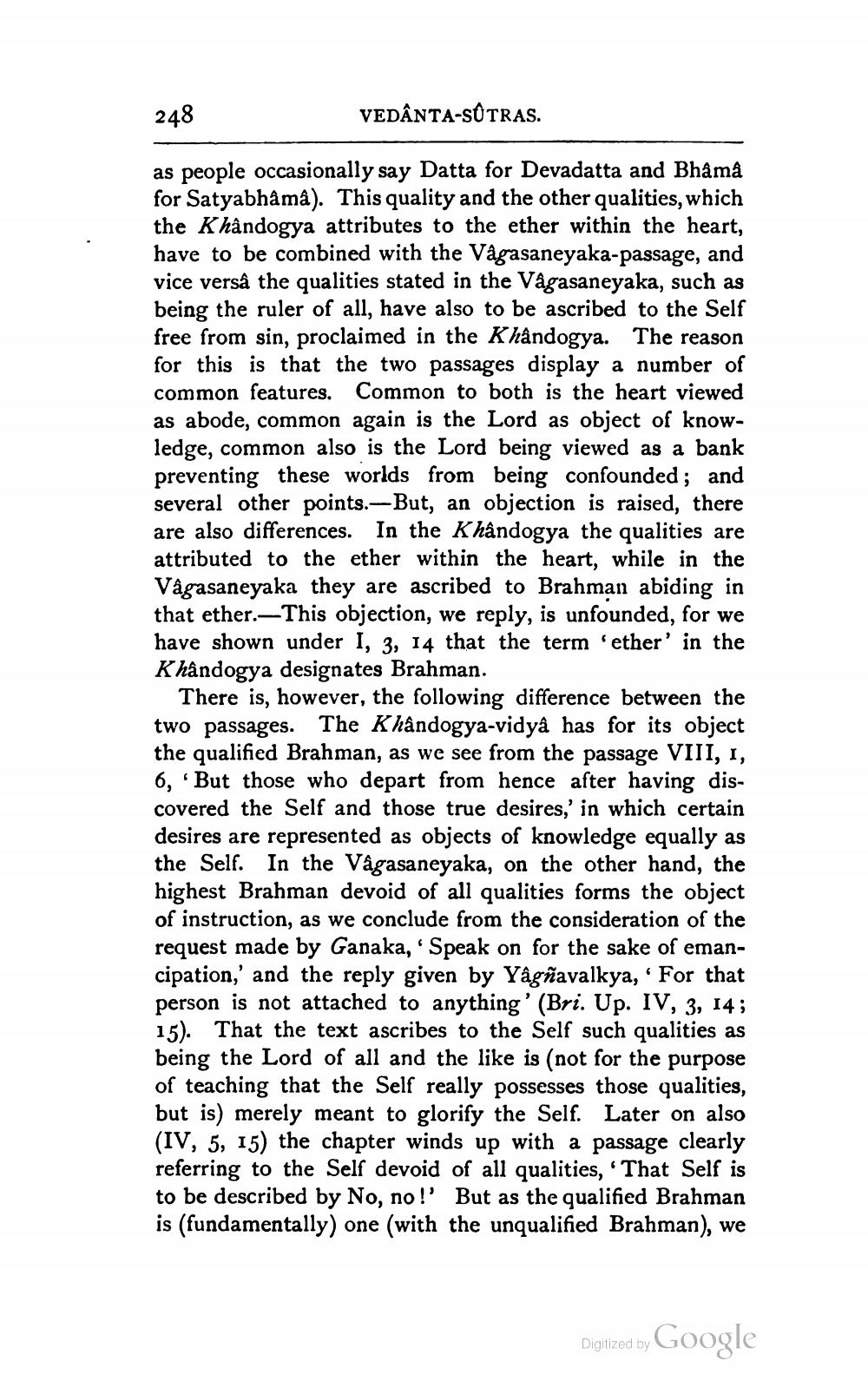________________
248
VEDANTA-SUTRAS.
and
as people occasionally say Datta for Devadatta and Bhâmâ for Satyabhâmâ). This quality and the other qualities, which the Khandogya attributes to the ether within the heart, have to be combined with the Vagasaneyaka-passage, vice versâ the qualities stated in the Vâgasaneyaka, such as being the ruler of all, have also to be ascribed to the Self free from sin, proclaimed in the Khândogya. The reason for this is that the two passages display a number of common features. Common to both is the heart viewed as abode, common again is the Lord as object of knowledge, common also is the Lord being viewed as a bank preventing these worlds from being confounded; and several other points.-But, an objection is raised, there are also differences. In the Khândogya the qualities are attributed to the ether within the heart, while in the Vâgasaneyaka they are ascribed to Brahman abiding in that ether. This objection, we reply, is unfounded, for we have shown under I, 3, 14 that the term 'ether' in the Khandogya designates Brahman.
There is, however, the following difference between the two passages. The Khandogya-vidyâ has for its object the qualified Brahman, as we see from the passage VIII, I, 6, 'But those who depart from hence after having discovered the Self and those true desires,' in which certain desires are represented as objects of knowledge equally as the Self. In the Vâgasaneyaka, on the other hand, the highest Brahman devoid of all qualities forms the object of instruction, as we conclude from the consideration of the request made by Ganaka, Speak on for the sake of emancipation,' and the reply given by Yâgñavalkya,' For that person is not attached to anything' (Bri. Up. IV, 3, 14; 15). That the text ascribes to the Self such qualities as being the Lord of all and the like is (not for the purpose of teaching that the Self really possesses those qualities, but is) merely meant to glorify the Self. Later on also (IV, 5, 15) the chapter winds up with a passage clearly referring to the Self devoid of all qualities, 'That Self is to be described by No, no!' But as the qualified Brahman is (fundamentally) one (with the unqualified Brahman), we
Digitized by Google




